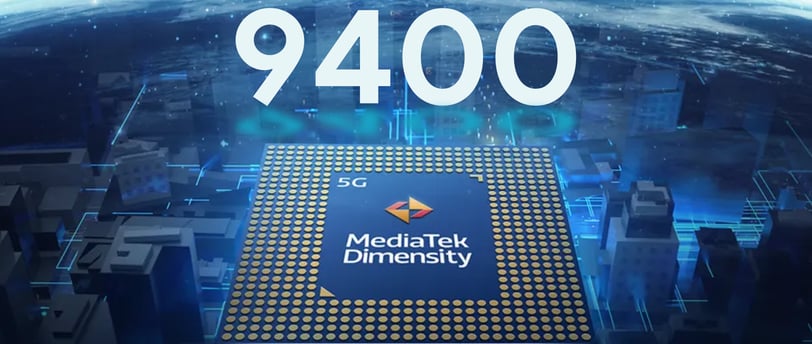Apple's A18 Pro Chip Loses With Mediatek and Snapdragon: A Closer Look at Performance and Comparison with Android Flagships
Unveiling the showdown: Apple's A18 Pro Chip vs. Mediatek and Snapdragon. Dive into our in-depth analysis for a closer look at performance and a comprehensive comparison with Android flagships. Stay informed, stay ahead with our detailed breakdown of this epic tech battle.
APPLETECH NEWSMEDIATEKSNAPDRAGON


Apple's A18 Pro Chip: A Closer Look
As the release date of the iPhone 16 series approaches, there has been much discussion surrounding Apple's latest A18 Pro chip, which will power these new smartphones. Previous reports have indicated that the A18 Pro chip offers a significant improvement in single-core performance. However, a recent tip from @negativeonehero on X now suggests that the multi-core performance of the A18 Pro may not be as impressive.
Comparing Multi-Core Performance
According to the tipster, the multi-core performance of the A18 Pro chip is said to only have a 10% improvement. This is reportedly inferior when compared to two of the next generation Android flagships: the Snapdragon 8 Gen 4 and Dimensity 9400. In fact, both the Snapdragon 8 Gen 4 and Dimensity 9400 outperformed the A18 Pro by more than 2000 points in multi-core performance.
Single-Core Performance: Snapdragon 8 Gen 4 Takes the Lead
While the multi-core performance of the A18 Pro may not be on par with its Android counterparts, it's worth noting that the single-core performance of the chip is still noteworthy. In fact, the Snapdragon 8 Gen 4 achieves impressive single-core scores, surpassing the A18 Pro in this aspect.
It's important to remember that single-core performance is often a crucial factor in determining the overall speed and responsiveness of a device. With the Snapdragon 8 Gen 4 leading the way in this regard, it may have an edge over the A18 Pro when it comes to certain tasks and applications that heavily rely on single-core performance.
The Future of Smartphone Performance
As technology continues to advance, the performance capabilities of smartphones are constantly evolving. While the A18 Pro chip may not be the clear winner in terms of multi-core performance, it's important to consider other factors that contribute to the overall user experience.
Apple has always been known for its seamless integration of hardware and software, which often results in a smooth and optimized user experience. Additionally, the A18 Pro chip may have other features and optimizations that are not solely focused on raw performance numbers.
Furthermore, it's worth mentioning that benchmark scores are not the only determining factor when it comes to real-world performance. Factors such as software optimization, RAM management, and overall system efficiency can also greatly impact the user experience.
Conclusion
While the multi-core performance of Apple's upcoming A18 Pro chip may not be as impressive as some of its Android counterparts, it's important to consider the overall package that Apple offers with its devices. The single-core performance of the A18 Pro chip, although not leading the pack, is still noteworthy.
Ultimately, the choice between the iPhone 16 series with the A18 Pro chip and Android flagships with the Snapdragon 8 Gen 4 or Dimensity 9400 will depend on individual preferences and priorities. It's important to consider factors beyond benchmark scores and focus on the overall user experience, including software optimization, ecosystem compatibility, and personal preferences.
As the smartphone market continues to evolve, it's likely that we will see further advancements in performance from both Apple and Android manufacturers. The A18 Pro chip may not be the ultimate leader in multi-core performance, but it represents another step forward in Apple's ongoing pursuit of delivering powerful and efficient devices to its users.
